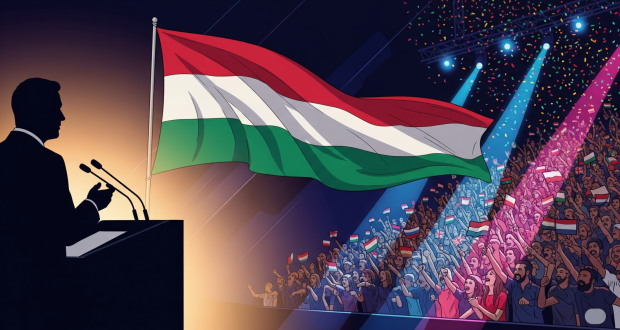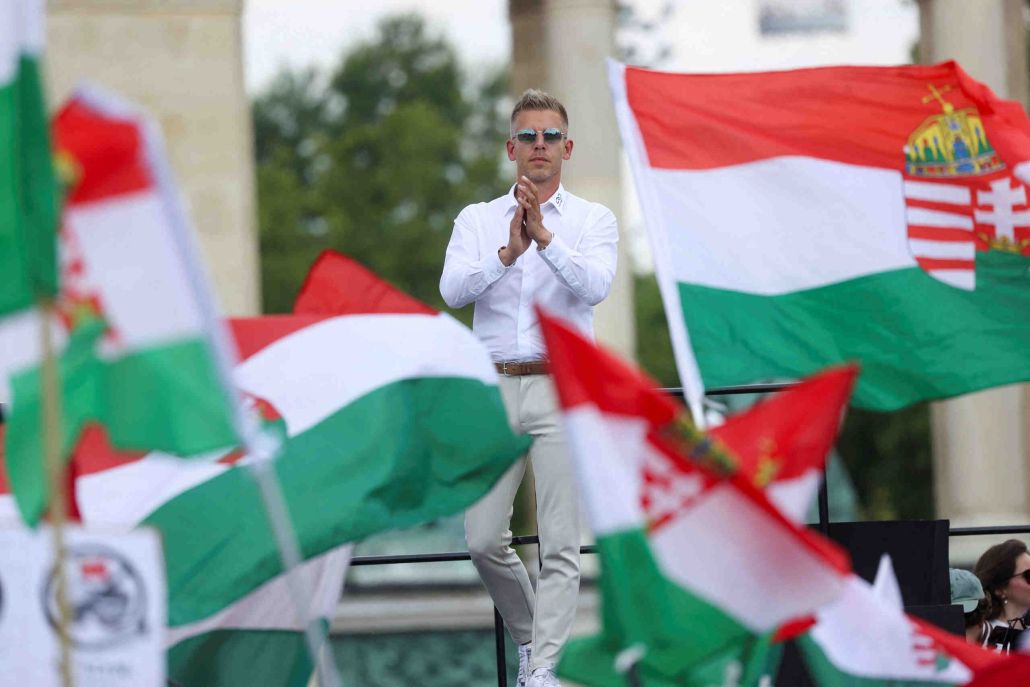After Hungary withdrew from the Eurovision Song Contest following the 2019 competition, silence fell in Hungarian media and Eurovision circles. There were no updates or even rumors about a possible return.
Although the official explanation from the public broadcaster MTVA was that it would rather focus on promoting local talent instead of participating in the contest, many believed that political motives were behind the decision. Namely, during the period of withdrawal, the Hungarian government intensified its anti-LGBTQ+ rhetoric, and some pro-government commentators even disparagingly called Eurovision a „homosexual caravan.“
Unlike some countries that withdrew for financial reasons, Hungary was neither in financial trouble nor was it excluded from the competition like Russia and Belarus.
A turn in the political scene
The current political situation in Hungary is uncertain, with the key players being the current Prime Minister Viktor Orbán and his Fidesz party, whose support has dropped to 39%, and opposition leader Péter Magyar with his Tisza party (European People’s Party), whose popularity is rising and currently stands at 46%.
Péter Magyar, the leader of the opposition Tisza party, recently announced something unexpected during an open Q&A with citizens. When a young man asked directly about a return to Eurovision, Magyar’s answer was clear and public:
„I don’t know if that’s the government’s responsibility, but if it is, we will do it. It is wrong that we are not participating, and we should not have withdrawn“.
As part of a broader plan to restore the country’s reputation and relations with allies, Magyar also commented on Russia’s exclusion, stating: „I agree with Russia’s exclusion; we should not allow any war criminal to participate. So this is what will happen. If it is in the hands of the government, we will go ahead with it.“
Magyar’s stance is in complete opposition to the current policy, as he advocates for a return to a competition that is inclusive and supports the LGBTQ+ community. His statements, if he comes to power, could signal a major cultural and political shift.
The history of Hungary at Eurovision – from success to withdrawal
Hungary made its debut at the Eurovision Song Contest in 1994, immediately achieving its greatest success when Friderika Bayer finished in fourth place. This was followed by other significant results, including András Kállay-Saunders‘s fifth-place finish in 2014 and Joci Pápai‘s top 10 placement with the song „Origo“ in 2017.
After a few withdrawals and returns, Hungary used the national selection show A Dal to choose its representative starting in 2012. However, in 2019, Pápai failed to qualify for the final, and after that competition, Hungary withdrew from participation. Although the public broadcaster’s official explanation was that it would focus on domestic talent, many media outlets speculated that the real reason for the withdrawal was the rise of anti-LGBTQ+ rhetoric within the Hungarian government.
The decision to withdraw was in sharp contrast to the inclusive spirit of Eurovision, leading to the termination of a long-standing partnership.
A return for Hungary to Eurovision now seems a realistic possibility, as the topic has become part of the political platform of one of the strongest candidates in the upcoming 2026 elections. It remains to be seen whether the wishes of the opposition leader and Eurovision fans will come true.
Hungary’s last Eurovision performance
 OGAE Serbia :: Vaš evrovizijski svet
OGAE Serbia :: Vaš evrovizijski svet




